Reporter: Dear Dr. Nguyen Thanh Long, in response to the major and strategic breakthrough policy of Resolution No. 57-NQ/TW, what steps has the Academy of Policy and Development taken to successfully implement its goals in the fields of training and scientific research?
Dr. Nguyen Thanh Long : Resolution No. 57-NQ/TW of the Central Committee is a major, important policy, of strategic breakthrough, integrated and resonant with the common development trend of humanity, aiming to create a comprehensive driving force to bring the country to develop strongly, comprehensively and powerfully in the new era. With the role of both a university and a center for training strategic staff for the national financial sector, the Academy of Policy and Development has identified solutions and action programs to implement Resolution No. 57-NQ/TW of the Politburo and Resolution No. 03/NQ-CP of the Government on breakthroughs in science, technology development, innovation and national digital transformation.
First of all, we identify raising awareness of the role of the School and scientists in developing science, technology, innovation and digital transformation of the entire system. The School and scientists are the key; while the surrounding groups such as people, learners and businesses will be the center, the subject, the main driving force for the development of science, technology, innovation and national digital transformation. The Party Committee resolutely leads, directs, creates new momentum and new spirit in all aspects of the School's activities, towards developing science, technology, innovation and digital transformation. The tasks of digital transformation, developing science, technology and innovation are specifically identified in the annual work program and plan of the Academy.
Second, the Academy has policies to develop and promote high-quality human resources to meet the requirements of scientific and technological development, innovation and digital transformation of the entire system. We have focused on implementing competitive recruitment and remuneration mechanisms, creating an open and creative working environment to attract and retain highly qualified lecturers and scientists at home and abroad. This substantial promotion of talent has created a high-quality teaching and research staff capable of leading the comprehensive innovation process at the Academy.
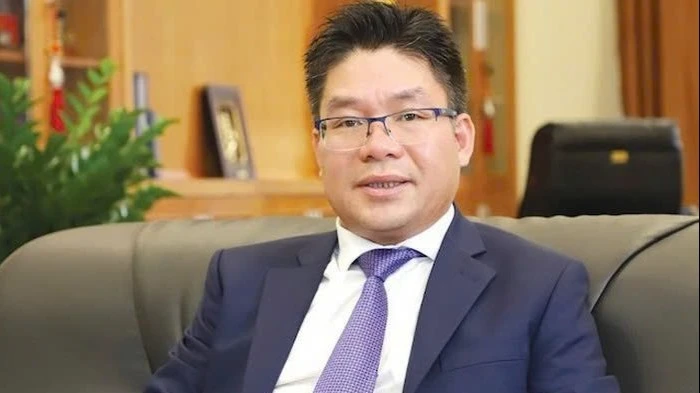 |
Dr. Nguyen Thanh Long, Party Secretary of the Academy of Policy and Development |
Third, the Academy quickly established the trend of open university education model in the context of the 4.0 technology revolution and the strong digital transformation trend in Vietnam and internationally, specifically the trend of: Open educational resources, Open science, Technology and Open access, creating an important foundation, thoroughly implementing the policy of General Secretary To Lam and the Central Committee in the process of building a learning society, lifelong learning. How can learners from the demand side request to participate in a course with all the "any" characteristics that learners desire. Meanwhile, from the supply side, educational institutions and other education providers must have enough resources to meet that requirement.
The Academy is focusing on developing new interdisciplinary and cross-disciplinary majors associated with science and technology that society has a high demand for human resources such as: Digital Economy, Global Business, Digital Marketing, Digital Banking, Digital Finance...
In the immediate future, to meet the needs of the high-quality human resource market and adapt to the 4.0 industrial revolution, the Academy is focusing on developing new interdisciplinary and cross-disciplinary majors, linked to science and technology, where society has a high demand for human resources such as: Digital Economy, Global Business, Digital Marketing, Digital Banking, Digital Finance..., promoting applied research, actively participating in important projects such as building mechanisms, policies and legal frameworks for the formation of an international financial center in Vietnam.
Fourth, promote digital transformation, apply science and technology, innovate, create, build an innovative university environment . In the coming time, the School will continue to research, develop plans and roadmaps for digital transformation in all activities of the School, specifically: Promote the application of digital transformation in management, administration, and operation; Apply technology in classrooms, teaching and learning methods.
In management, administration, operation, comprehensive innovation in handling administrative procedures, providing services; improving the quality of online public services, digital services for learners. Actively promote the redevelopment of technology, online working processes, promote the application of BigData, IoT... to enhance the connection between departments. All operations like a business, with support departments such as: Administrative Organization, Human Resources, Financial Accounting... will be digitized by human resource management software, financial - asset management... Applying technology in management, helping learners easily look up information when coming to the library, helping lecturers manage student transcripts, timetables, or other information. Through digital transformation applications, students can easily search for learning materials and teachers can easily manage achievements, personal records as well as many information related to teaching methods easily and save time.
In the classrooms, the School has invested in modern facilities, meeting the ability to expand the application of information technology and digital technology in training and research. Students at the Academy always have access to the most necessary and modern conditions to participate in experiences, access high technology to self-improve and research to meet their needs. The School also supports students in developing skills, nurturing talents, and accessing new sources of knowledge from advanced training programs in the world. The training programs all guide students to participate in practice and experience at businesses, helping students apply the knowledge they have learned to solve practical problems.
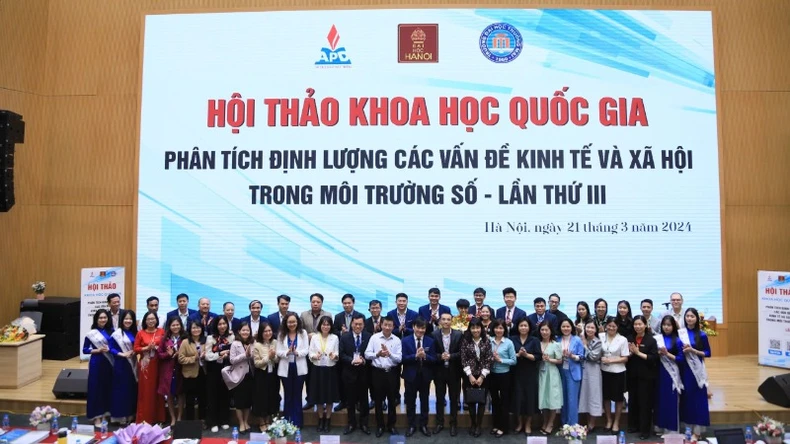 |
| The Academy always focuses on building and implementing a three-party cooperation model including: Academy - Enterprise - Policy making agency. |
Reporter: Can you tell us what role digital transformation plays in improving the quality of training at higher education institutions?
Dr. Nguyen Thanh Long : Digital transformation is the process of replacing not only traditional methods, solutions, and means of production with digital technology, but also traditional thinking, perception, and approaches by using new technologies, such as Artificial Intelligence (AI) - like human intelligence; Big Data - like the human brain; Internet of Things (IoI) like human senses; Cloud computing (iCloud) like human muscles...
Digital transformation is considered a vital factor, a strategic turning point for the Academy of Policy and Development to make a stronger breakthrough in the digital age. We realize that in order to train high-quality human resources to adapt to the digital economy, first of all, the higher education system itself must be a pioneer in innovating the governance system, training and research methods, based on advanced technology platforms.
Reporter: Can you share about the outstanding technology applications that the Academy of Policy and Development is currently implementing?
Dr. Nguyen Thanh Long : In its development strategy, the Academy of Policy and Development strives to become a smart university by 2030. The Academy is on the roadmap to implement the Digital Transformation Project in university administration, including training management systems, lecturer and student data, digital libraries, electronic learning materials and especially smart online learning platforms. Modern and advanced applications in university administration such as enrollment, training management, teaching, scientific research, blended-learning models, data information management, APD - Slink ecosystem... have been applied to help optimize training efficiency, personalize learner experiences, creating a big step forward in the quality of education at the Academy.
Reporter: One of the factors that learners are interested in is the cooperation between training institutions and scientific organizations and the business community. How is this activity promoted at the Academy, especially after Resolution 57 was issued, sir?
Dr. Nguyen Thanh Long : It can be said that the issuance of Resolution 57-NQ/TW has created a strong driving force, promoting the Academy of Policy and Development to proactively expand and enhance cooperative relationships with the business community and prestigious domestic and foreign scientific and technological organizations. Based on a clear understanding of the strategic role of this cooperation, the Academy has synchronously implemented three important and effective steps.
The systematic construction and implementation of a tripartite cooperation model, including: Academy - Enterprise - Policy making agency, has helped the Academy gradually form an effective training and research ecosystem, closely linked to socio-economic practices.
First of all, the Academy has pioneered in building and implementing a methodical tripartite cooperation model, including: Academy - Enterprise - Policy-making agency. In fact, establishing close cooperative relationships with large enterprises such as Viettel, Vietinbank, SHB and leading policy research agencies such as: Institute of Strategy and Economic - Financial Policy, National Innovation Center (NIC), has helped the Academy gradually form an effective training and research ecosystem, closely linked to socio-economic practices.
Second, the Academy has materialized these cooperative relationships through practical training programs that closely meet the actual requirements of businesses. Lecturers and students of the Academy directly participate in innovation projects, technology transfer programs and practical applications at businesses. At the same time, the Academy also proactively invites leading experts from businesses to deeply participate in the training, consulting and career orientation process. As a result, the quality of training has been significantly improved, students have the opportunity to practice practical skills, immediately meeting the requirements of the labor market.
Third, especially in the context of strong digital transformation, the Academy has quickly established strategic cooperation relationships in the field of new technologies, typically Blockchain and artificial intelligence (AI). Specifically, the Academy has proactively worked and signed a strategic cooperation agreement with the Vietnam Blockchain Association, cooperated with large international technology corporations such as Tether, to develop in-depth training programs on Blockchain and AI, and at the same time strongly promote research activities, practical application of these advanced technologies in the fields of economics - finance and policy making. This is a strategic step, demonstrating the Academy's sharp management thinking and high adaptability to global technology trends.
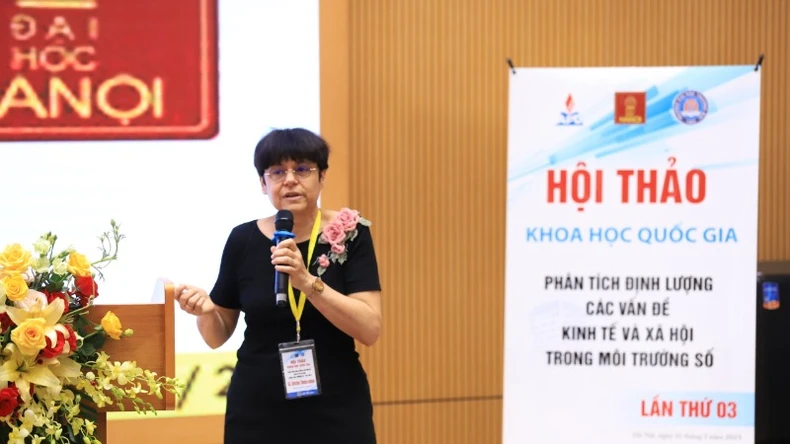 |
Professor Christine Thomas-Agnan, Toulouse School of Economics, Toulouse 1 Capitole University, France participates in academic exchange with the Academy of Policy and Development |
Fourth, strengthen international cooperation: Cooperate and exchange experiences in academics, learning materials; training methods and programs, research; exchange students and lecturers with prestigious universities from developed countries; promote training linkages; research mechanisms and policies to attract foreign experts and scientists, especially scientists of Vietnamese origin abroad, to participate in research and teaching at the Academy.
Reporter: In order for universities to contribute more effectively to the country's goals of developing a digital economy and innovation, what policies do you think the government needs to supplement?
Dr. Nguyen Thanh Long : In my opinion, in order for universities to truly become an important driving force for promoting digital economic development and innovation, the State needs to focus on the following three key policy groups:
Firstly , continue to improve the legal system on higher education, including building a more substantial, transparent and clear university autonomy mechanism, allowing schools to proactively build and develop advanced training programs, especially interdisciplinary and cross-disciplinary fields to meet the requirements of digital economic development and international integration today. The legal system needs to be changed, removing bottlenecks to help keep up with modern higher education development trends, specifically: (1) The trend of popularization, shifting from elite education to mass education, universalization, in an open, interconnected and flexible orientation, in line with the Party's viewpoints and policies on building a learning society, creating conditions for people to learn for life and conduct training according to market needs; (2) The trend of diversification. Develop many types of schools with diverse training structures in terms of levels and professions in the direction of academics (Academy) and professions, technology leaning towards practice; Develop a network of research universities to become centers for production, use, distribution, export of knowledge and transfer of new and modern technology; (3) Focus on and further improve the guaranteed quality (Quality Assurance), build competitiveness, retain domestic learners and gradually build international and regional human resource training services. Universities become human resource training service establishments attracting investment capital in training.
Second , build financial and investment mechanisms that prioritize innovation and applied research at universities, promote the formation of interdisciplinary research centers on digital economy, public policy and financial technology, and create a sustainable and effective research - training - innovation ecosystem.
Third , synchronously implement policies to attract talent and enhance international cooperation, build an international competitive remuneration mechanism to attract leading experts, lecturers, and prestigious scientists at home and abroad to work, thereby improving the quality of training, research and policy consulting, meeting the requirements of national integration and development.
These policies, if implemented synchronously, will create strong motivation, helping universities maximize their potential, making practical and effective contributions to the country's goals of developing the digital economy and innovation in the digital age, as expected from Resolution No. 57-NQ/TW.
Thank you very much!
Source: https://nhandan.vn/truong-dai-hoc-voi-su-menh-doi-moi-theo-nghi-quyet-so-57-nqtw-post868822.html


![[Photo] Prime Minister Pham Minh Chinh meets with King Philippe of Belgium](https://vstatic.vietnam.vn/vietnam/resource/IMAGE/2025/4/1/be2f9ad3b17843b9b8f8dee6f2d227e7)
![[Photo] General Secretary To Lam receives King Philippe of Belgium](https://vstatic.vietnam.vn/vietnam/resource/IMAGE/2025/4/1/e5963137a0c9428dabb93bdb34b86d7c)


![[Photo] President Luong Cuong and King Philippe of Belgium visit Thang Long Imperial Citadel](https://vstatic.vietnam.vn/vietnam/resource/IMAGE/2025/4/1/cb080a6652f84a1291edc3d2ee50f631)
![[Photo] Close-up of Vietnam's sniffer dog team searching for earthquake victims in Myanmar](https://vstatic.vietnam.vn/vietnam/resource/IMAGE/2025/4/1/d4949a0510ba40af93a15359b5450df2)

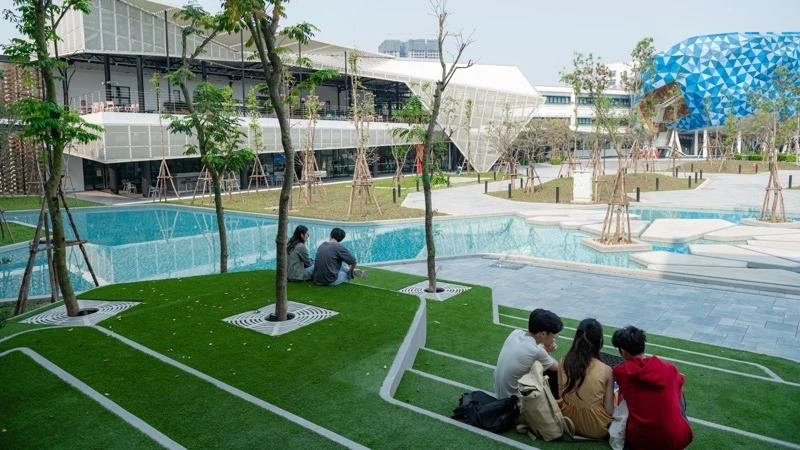
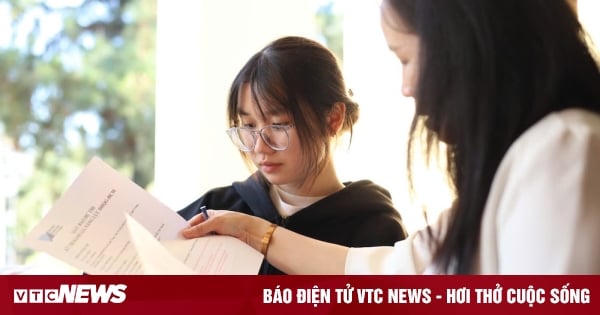

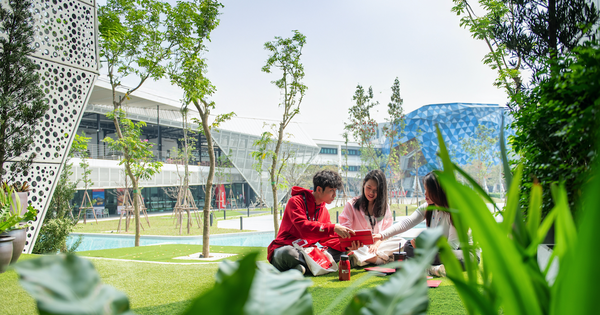
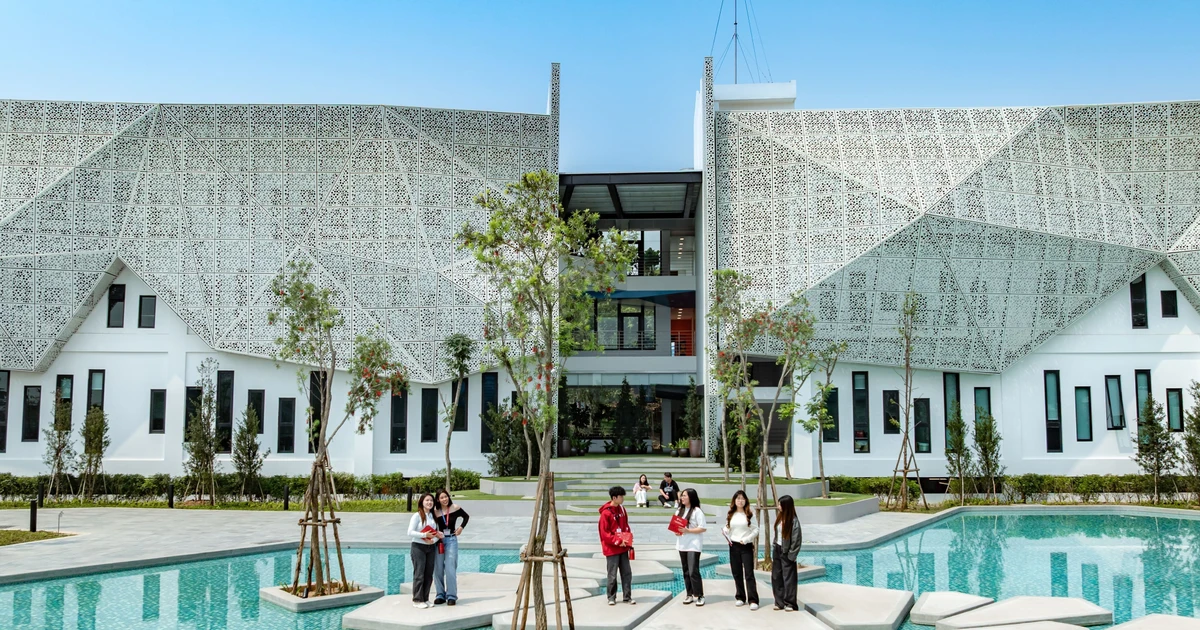





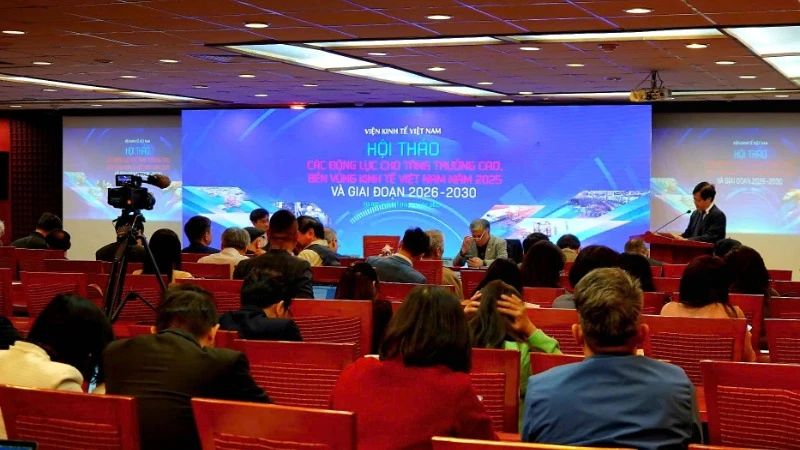

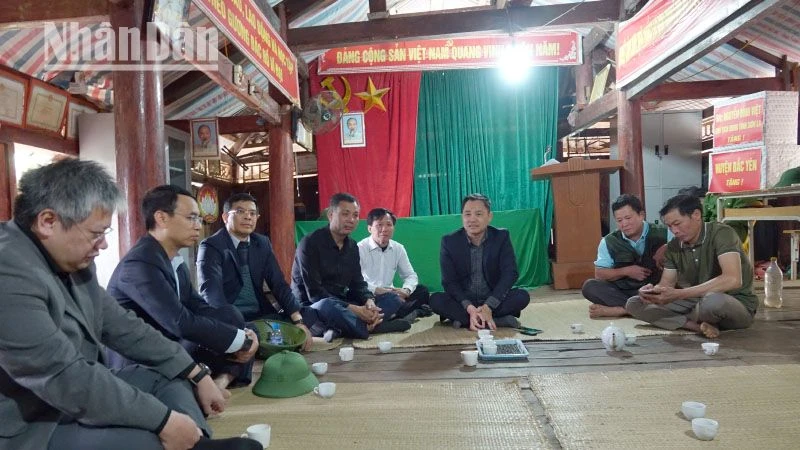

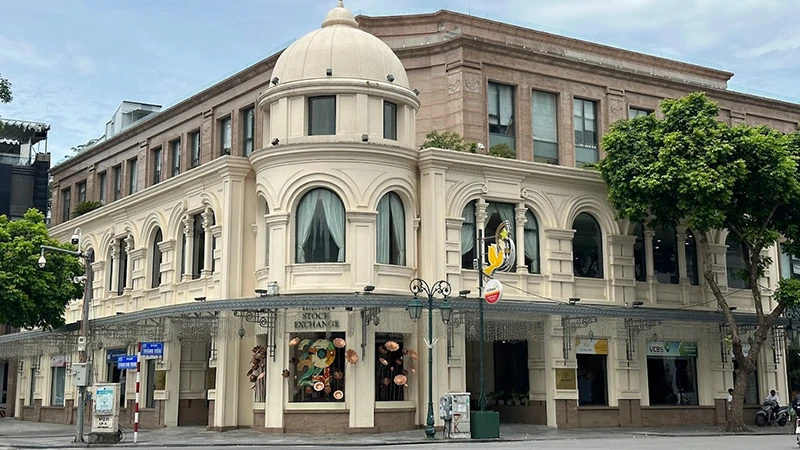
![[Photo] Myanmar's capital in disarray after the great earthquake](https://vstatic.vietnam.vn/vietnam/resource/IMAGE/2025/4/1/7719e43b61ba40f3ac17f5c3c1f03720)
















































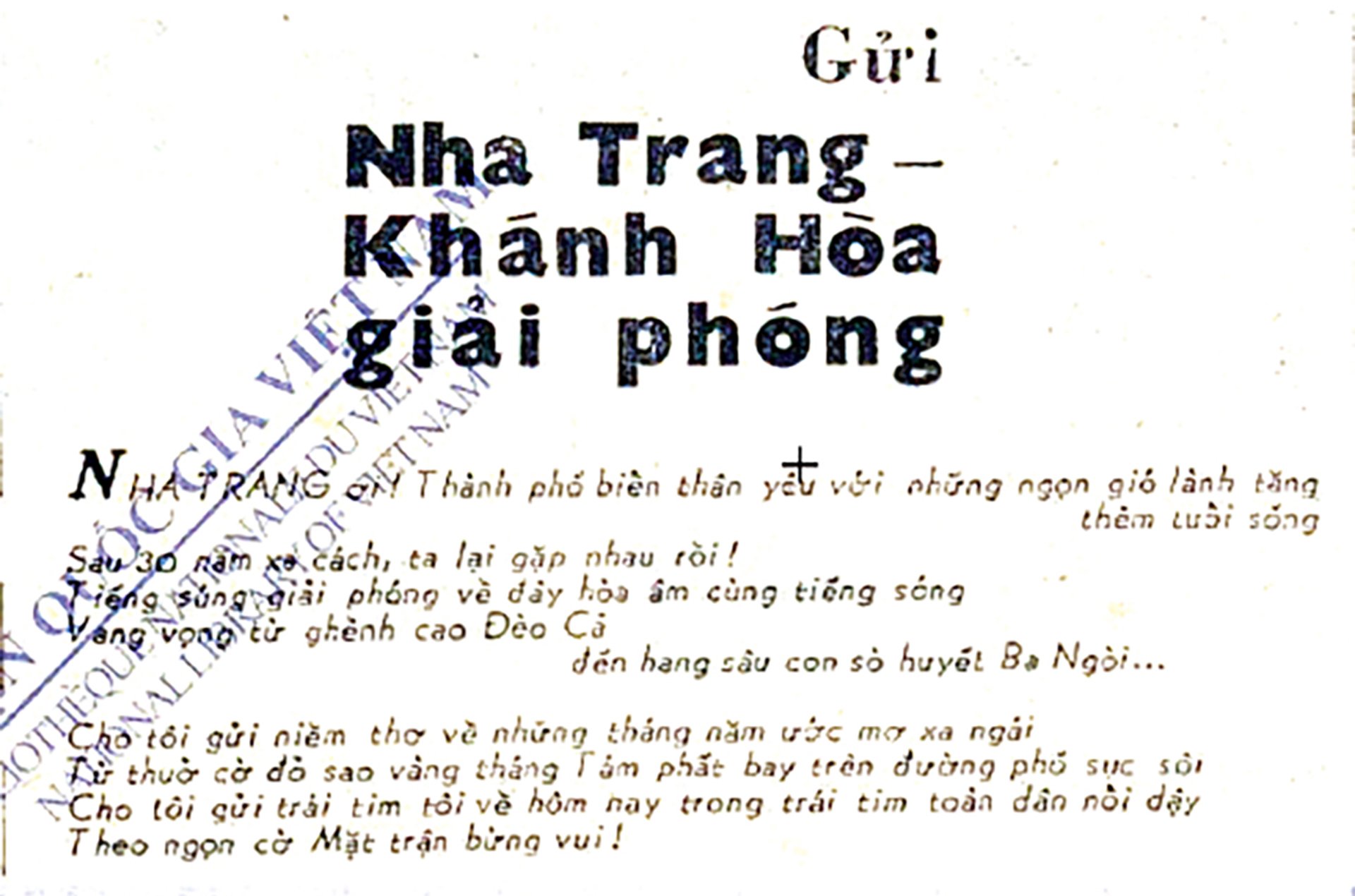














Comment (0)